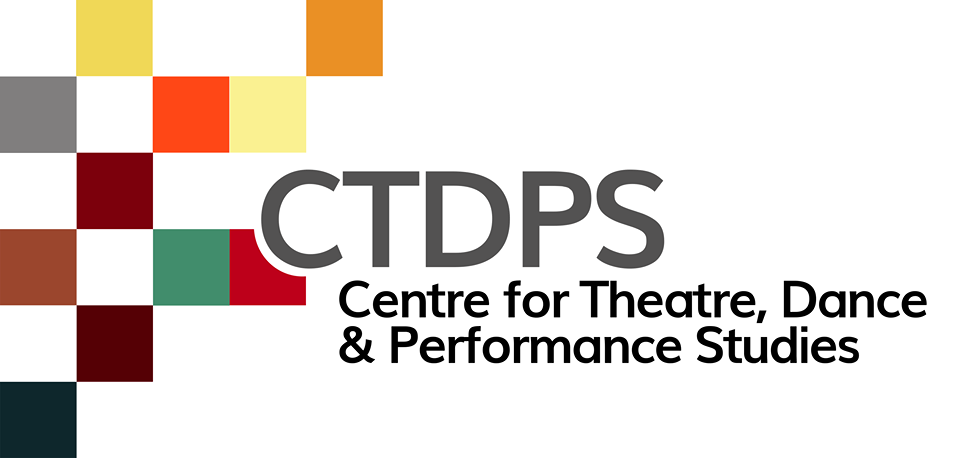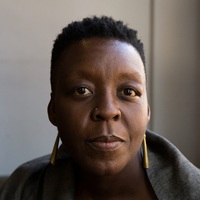Astronautus Afrikanus: Performing African Futurism
Title
Astronautus Afrikanus: Performing African Futurism
Description
This chapter is concerned with current debates in South African higher education institutions about what counts as knowledge and research and how this research is conducted and shared in order to de-centre settler perspectives. The chapter will propose that the modes of inquiry offered by live performance practice and the genre of African Futurism can combine to offer alternative approaches to the archive and embodied participation in the historically charged debates of decolonizing education. The chapter is specifically concerned with marginal histories and their speculative representation, the migratory mythology embedded in the speculative genre and the political utility of African speculative artistic practice at this moment in history.
The chapter will look at Kapwani Kiwanga’s Afrogalactica Trillogy (2011-2015) and Kabwe’s Astronautus Afrikanus (2015), as instances of African Futurism in recent live performance works in South Africa. Differing vastly in form and content, these case studies will be explored as examples of speculative research practice and performance as ways of knowing.
The last of Kapwani Kiwanga’s Afrogalactica trilogy, subtitled The Deep Space Scrolls was performed in Johannesburg at the 2015 African Futures Festival. In her 45 minute performance lecture about the ancient civilizations of Mali and Great Zimbabwe, Kiwanga performs the character of an anthropologist from the future who lives in the United States Africa in the year 2100 and has travelled back to our time to inform us of the Afronaut Odyssey [i].
The second performance work that will converse with Kiwanga’s is a devised production titled Astronautus Afrikannus [ii] performed by students at Rhodes University in 2015. This work used as its source Edward Mukuka Nkoloso, a Zambian schoolteacher who in 1963 was so convinced that Zambia would beat the Russians and Americans to space that he started a space training programme in a secret location not far from Lusaka. The Astronuatus Afrikanus project came to manifest as a large-scale immersive series of live installations of spacecraft technicians at their various worksites in the process of harnessing useful materials to sustain life on another planet. In light of the student protests that surrounded the making of this work, it was driven by a series of questions about knowledge: ‘what happens if we start from the premise that we know; that we are full of knowing and our capacity for curiosity about ourselves, each other and the world we share, is great…what happens if we consider indigenous African knowledge systems central rather than alternative...’ (Kabwe, 2015).
The two works investigated in this chapter themselves ask a series of questions, including one asked by Jill Dolan: ‘How can performance model – not just in content or form or context but through the interaction of all three – ways of communicating in a public sphere that might encourage us to take mutual responsibility for reimagining social behavior’ (Dolan, 2005, p. 28). Other South African artists whose work (within the spectrum of the speculative genre) will be examined include: Spoek Mathambo, Thenjiwe Nkosi, Tegan Bristow, Rowan Smith and Albert ‘Ibokwe’Khoza and Pamela Phatsimo Sunstrum.
[i] https://tockify.com/africanfutures/detail/6/1446213600000
[ii] Enter Astronautus Afrikanus – http://www.thejournalist.org.za/art/enter-astronautus-afrikanus
The chapter will look at Kapwani Kiwanga’s Afrogalactica Trillogy (2011-2015) and Kabwe’s Astronautus Afrikanus (2015), as instances of African Futurism in recent live performance works in South Africa. Differing vastly in form and content, these case studies will be explored as examples of speculative research practice and performance as ways of knowing.
The last of Kapwani Kiwanga’s Afrogalactica trilogy, subtitled The Deep Space Scrolls was performed in Johannesburg at the 2015 African Futures Festival. In her 45 minute performance lecture about the ancient civilizations of Mali and Great Zimbabwe, Kiwanga performs the character of an anthropologist from the future who lives in the United States Africa in the year 2100 and has travelled back to our time to inform us of the Afronaut Odyssey [i].
The second performance work that will converse with Kiwanga’s is a devised production titled Astronautus Afrikannus [ii] performed by students at Rhodes University in 2015. This work used as its source Edward Mukuka Nkoloso, a Zambian schoolteacher who in 1963 was so convinced that Zambia would beat the Russians and Americans to space that he started a space training programme in a secret location not far from Lusaka. The Astronuatus Afrikanus project came to manifest as a large-scale immersive series of live installations of spacecraft technicians at their various worksites in the process of harnessing useful materials to sustain life on another planet. In light of the student protests that surrounded the making of this work, it was driven by a series of questions about knowledge: ‘what happens if we start from the premise that we know; that we are full of knowing and our capacity for curiosity about ourselves, each other and the world we share, is great…what happens if we consider indigenous African knowledge systems central rather than alternative...’ (Kabwe, 2015).
The two works investigated in this chapter themselves ask a series of questions, including one asked by Jill Dolan: ‘How can performance model – not just in content or form or context but through the interaction of all three – ways of communicating in a public sphere that might encourage us to take mutual responsibility for reimagining social behavior’ (Dolan, 2005, p. 28). Other South African artists whose work (within the spectrum of the speculative genre) will be examined include: Spoek Mathambo, Thenjiwe Nkosi, Tegan Bristow, Rowan Smith and Albert ‘Ibokwe’Khoza and Pamela Phatsimo Sunstrum.
[i] https://tockify.com/africanfutures/detail/6/1446213600000
[ii] Enter Astronautus Afrikanus – http://www.thejournalist.org.za/art/enter-astronautus-afrikanus
Creator
Date Issued
2019
Source
Type
Book Chapter
Language
English
Publisher
doi
https://doi.org/10.18772/22019022798




